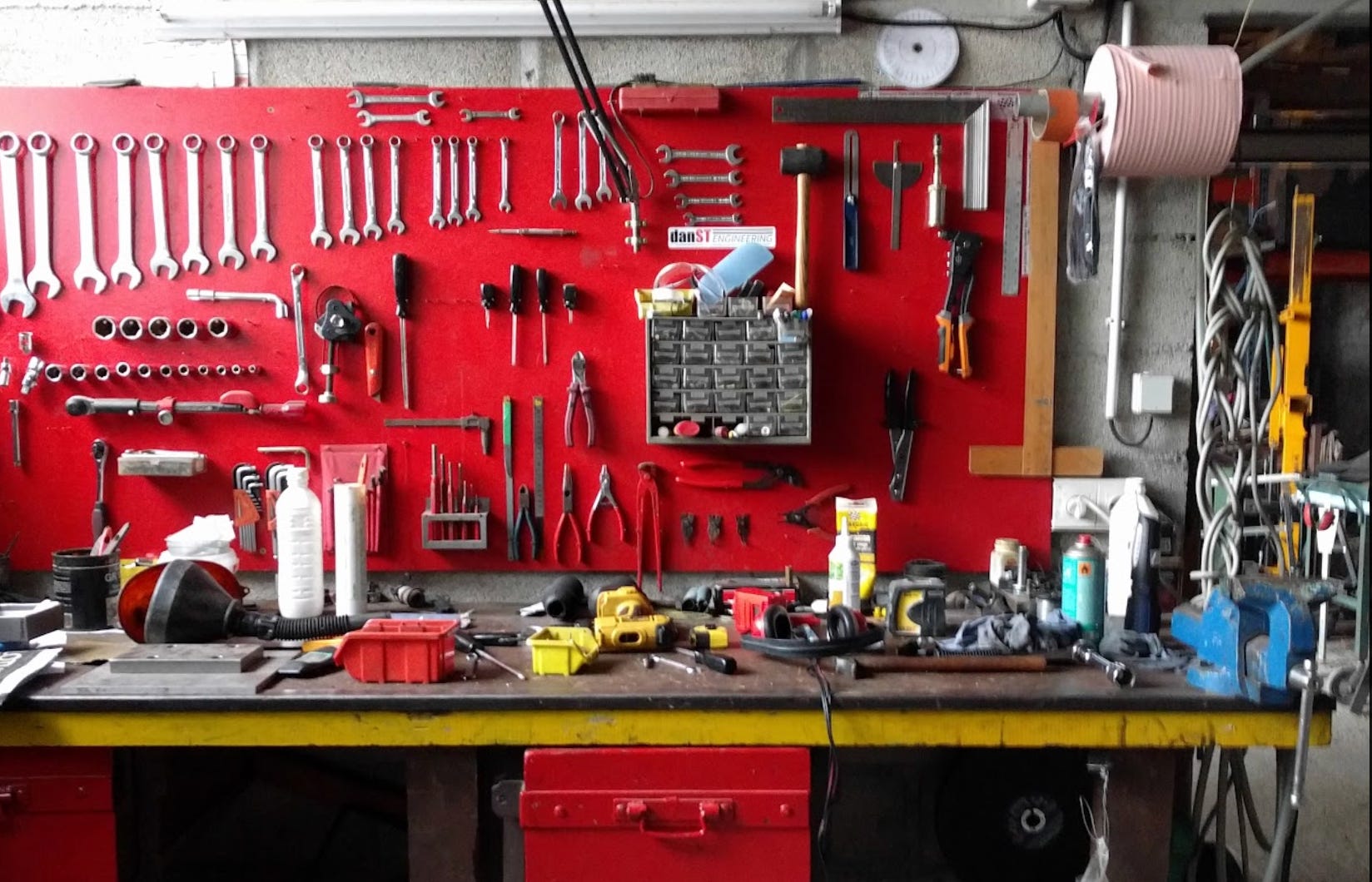Tool-building (wk 26/2025)
Uncomfortable questions about unknowns; building AI tools for better meaning-making; problems, learned helplessness, performance, comfort, and dissonance.
Hello friends,
This past week, I was on several long videoconferences with senior management of an organisation I’m working with. During each meeting, the discussion predictably circled the growing number of unknowns that are messing up their global business planning and strategy. Also predictably, the conclusion was to deal with these unknowns by investing more energy into cataloguing them and quantifying their probabilities.

Climate change and extreme weather, upheavals in economies and labour markets, political transition, geostrategic conflict, natural hazards, unexpected side effects of financialisation, novel disease, new technology. These disruptions aren’t stopping, and they increasingly compound each other. The unknowns causing these disruptions are truly uncertain one, not just risky. Is the right approach to dealing with unknowns to just pour time, effort, and money into trying (and inevitably failing) to quantify them accurately?
The organisation I’m working with is clearly not alone. I’m continually being sent articles about how uncertainty is penetrating more domains of life, that uncertainty is increasingly unavoidable and becoming more intense, that leaders must become sophisticated managers of uncertainty, etc. It’s good that more journalists and thinkers are recognising the difference between risk and uncertainty. But where these articles offer suggestions about how to respond to this onrushing wave of uncertainty, the recommendations are always old wine, and not even in new bottles. The advice conflates uncertainty and risk, uses a risk mindset to approach true uncertainty, and doesn’t fundamentally rethink the risk-framed outcomes we choose to pursue. Will using these comfortable risk-oriented ways of thinking lead us in the wrong direction in a world increasingly dominated by uncertainty?
At the same time, without a more sophisticated way to understand uncertainties that aren’t simply risky, we can’t take full advantage of the opportunities for novelty, innovation, and change that uncertainty creates space for. If uncertainty is increasingly intense, unavoidable, and ubiquitous, shouldn’t we be finding better ways to understand its potential for generativity?
Asking these questions about unknowns is uncomfortable because they lead to uncomfortable conclusions about how unready we are for an uncertain (not just risky) world. The instinctive reaction to uncomfortable thoughts is to resort to comfortable old thinking. Isn’t it time for that to change?
Writing
A startup called Cluely has been marketing its AI tool by promising that “today is the start of a world where you’ll never have to think again.” This is a dire prospect. I’ve been working on a project to figure out what education and educational tools should be in a world where AI is increasingly ubiquitous. It’s still not ready for public consumption but I’ve written another short piece on building AI tools for better meaning-making. tl;dr: Instead of building tools that are designed to generate outputs indistinguishable from human outputs, we should be building AI tools that focus on helping users learn to do meaning-making: The work of making inherently subjective decisions about the subjective and relative value of things. You can read the whole thing here.
Elsewhere
As I continue working through practical questions about structuring user interactions to make meaning-making explicit, my old files have been more helpful than I’d expected — though not in ways that I’d have expected.
Tom West, skunkworks impresario at Data General, in Tracy Kidder’s The Soul of a New Machine:
I traveled with West to New York. We stopped at a grocery store in which the cash registers were equipped with one of those devices that reads the price of an item automatically, a computerized checkout system. This one wasn't working well. West got down on his hands and knees and poked his head in under the cashier's counter to have a look at the thing. The clerk made her mouth an O. When West came out, dusting off his hands, he explained that he had helped design this particular model when he had worked at RCA. "It's a kludge," he said grinning. The clerk had some trouble figuring what the beer we bought ought to cost, and as we left, West said, out of her earshot, "Ummmmh, one of the problems with machines like that. You end up making people so dumb they can't figure out how many six-packs are in a case of beer."Chuck Close, in Joe Fig’s Inside the Painter’s Studio:
I think our whole society is much too problem-solving oriented. It is far more interesting to [participate in] ‘problem creation’ … You know, ask yourself an interesting enough question and your attempt to find a tailor-made solution to that question will push you to a place where, pretty soon, you’ll find yourself all by your lonesome — which I think is a more interesting place to be.Daniel Lieberman, in an edge.org interview (also and incidentally a fine endorsement for investing in productive discomfort):
We love comfort, and people make a lot of money selling us comfort, but I would challenge the notion that comfort is usually good for us.William Carlos Williams, from Paterson IV:
Dissonance
(if you are interested),
leads to discoverySee you next week,
VT






